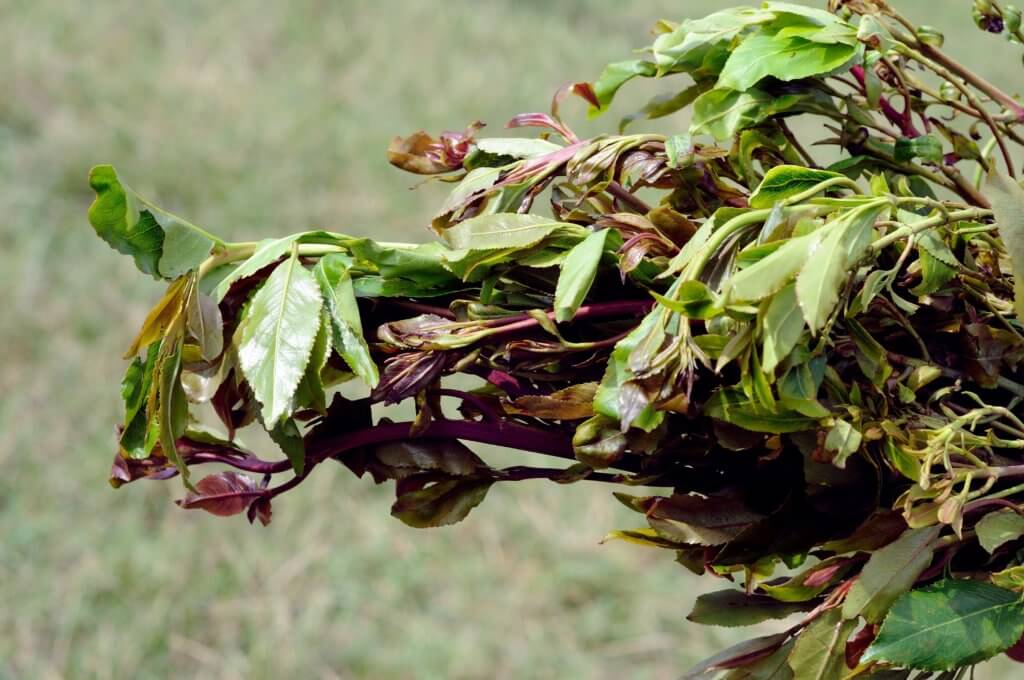Many people have not heard of khat but it is a drug used throughout the world, including the U.S. While to some people it may seem harmless, they often are not aware of its potential side effects. They may not ask themselves is khat addictive, assuming it must not be.
What is Khat?
Khat, sometimes called kat, qat, chat, Mira, or quaadka, is a stimulant drug derived from the leaves and young shoots of a wild shrub found in East Africa called Catha edulis. Chewing khat has its roots in cultural norms going back thousands of years. indigenous people in East Africa, the Middle East, and the Arabian Peninsula have used khat recreationally for its stimulant effects since the thirteenth century, including both adults and children.
While khat usage has its origins in other parts of the world, use of it often happens within immigrant groups that live in the United States, including those from Ethiopia, Somalia, and Yemen. While this population typically resides most commonly in U.S. cities with large populations, the use of khat has expanded beyond their borders and can be found all over the country.
Khat leaves are green or greenish-brown in color and glossy when fresh. As they age and dry, they become a yellowish-brown color. Visually, the khat leaves often appear similar to marijuana. Some users chew the leaves and hold them in their mouths in order to absorb the juice in them or convert them into a paste they can chew. Other users use the leaves to make tea or sprinkle them on their food, which provides a less intense effect, while some users smoke khat leaves.

Is Khat Addictive?
The central nervous stimulant in the plant causes similar reactions to using narcotics like cocaine or methamphetamines. When questioning is khat addictive, experts consider this fact because both cocaine and meth are highly addictive substances. Khat contains two central nervous stimulants, which is the primary reason the drug is not legal in the U.S. One of the stimulants is cathinone, which the Federal Controlled Substances Act classifies as a Schedule I drug. The other stimulant is cathine, which is classified as a Schedule IV drug.
When studying the question is khat addictive, the National Drug Intelligence Center reports that a person can develop a psychological dependence on khat if they abuse it. This can result in impaired mental health and unhealthy behavioral changes. Some people who abuse khat develop manic behavior, become paranoid, act violently, and experience thoughts of suicide. When a person becomes dependent on a drug like khat, it becomes necessary for them to seek professional treatment for their addiction.
More research needs to be done on definitively answering the question “Is khat addictive?”, but many medical experts are already in agreement that its usage can become, at the minimum, problematic. For those looking for the energy boost that stimulants provide, they may feel that khat is a viable option without asking themselves if khat is addictive.
Even when a substance with a stimulant effect is legal, such as caffeine or energy drinks, a physical and psychological dependence can occur. Going off a stimulant a person has a reliance on usually causes uncomfortable withdrawal symptoms, and in the case of a dangerous narcotic like khat, it likely requires professional assistance to detox from it. In addition, many people who engage in khat usage also use other addictive substances, which can create a need for detoxing from multiple substances.
Is Khat Addictive? Side Effects of Using Khat
Using khat can produce side effects that affect a person’s physical and mental health. They typically last from about ninety minutes to three hours, depending on how much is consumed. Common ones include:
- Headaches
- Constipation
- Ulcers
- Dizziness
- High blood pressure
- Elevated respiration
- Heavy breathing
- Elevated body temperature
- Hyperactivity
- Being very talkative
- Insomnia
- Difficulty concentrating
- Weight loss
- Dilated pupils
- Blurry vision
- Dental damage
- Hemorrhoids
- Impotence
- Depression
- Mood swings
Common Withdrawal Symptoms of Khat
A person who is addicted to khat typically experiences withdrawal symptoms when they stop using it. These can range in severity and how long they last depend on the length of time the individual used the drug and how much they normally consumed. While many people experience more psychological symptoms related to their moods than physical ones, both can occur. Withdrawal symptoms of khat can include:
- Headache
- Fatigue
- Increased appetite
- Feeling hot
- Slight tremors
- Nightmares
- Insomnia
- Moodiness
- Irritability
- Depression
- Anxiety
- Cravings for the drug
Khat Addiction Treatment in Los Angeles
If you or a loved one has developed an addiction to khat or another substance, Launch Centers can help you get sober. We provide substance abuse treatment and care for accompanying mental health diagnoses. Our comprehensive program includes high school and college courses to help young people achieve their educational and career goals.
Contact Launch Centers today and we will be happy to provide information about our detox, outpatient, and inpatient programs. Make today the day you take the first step in changing your life.





